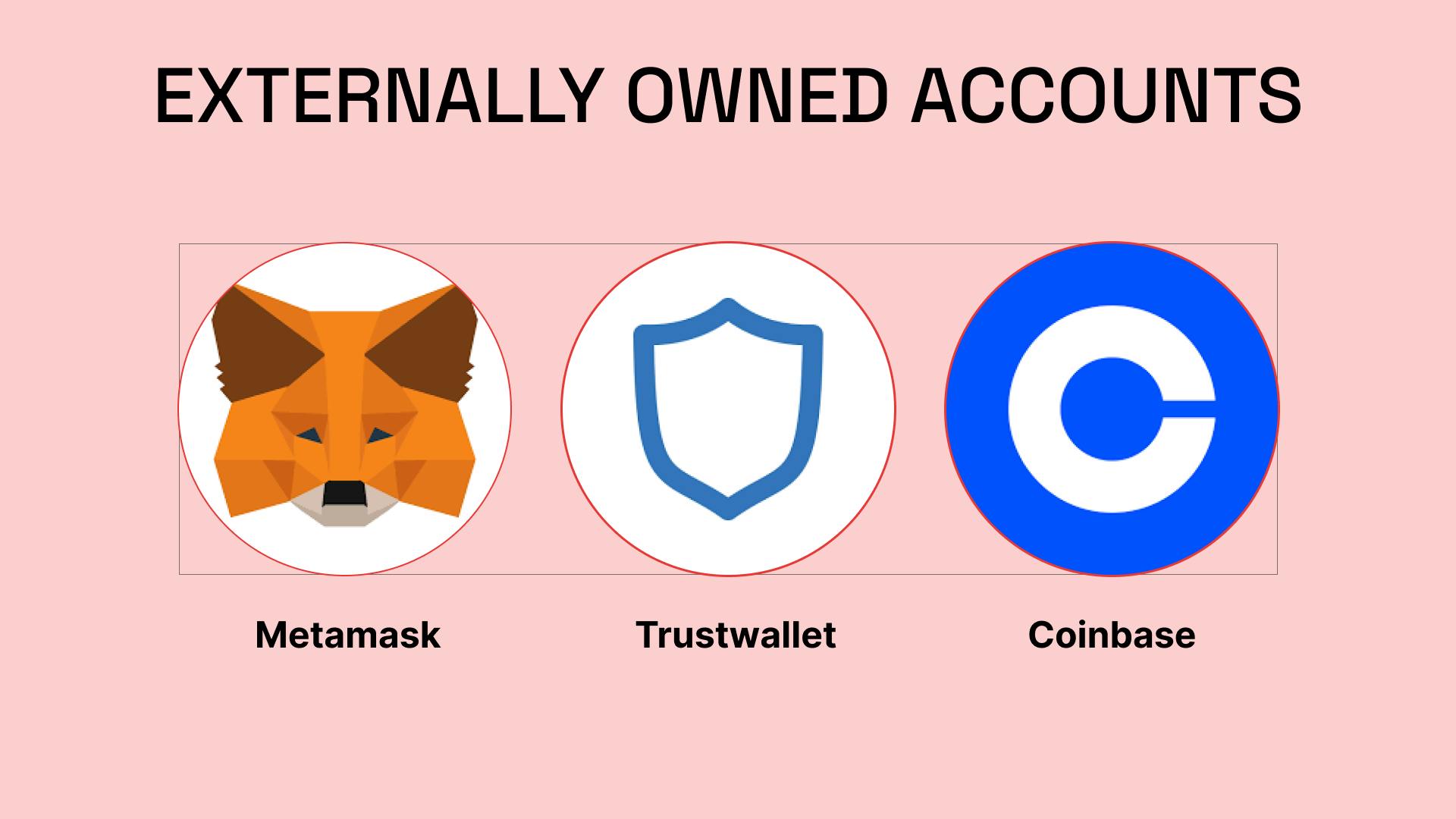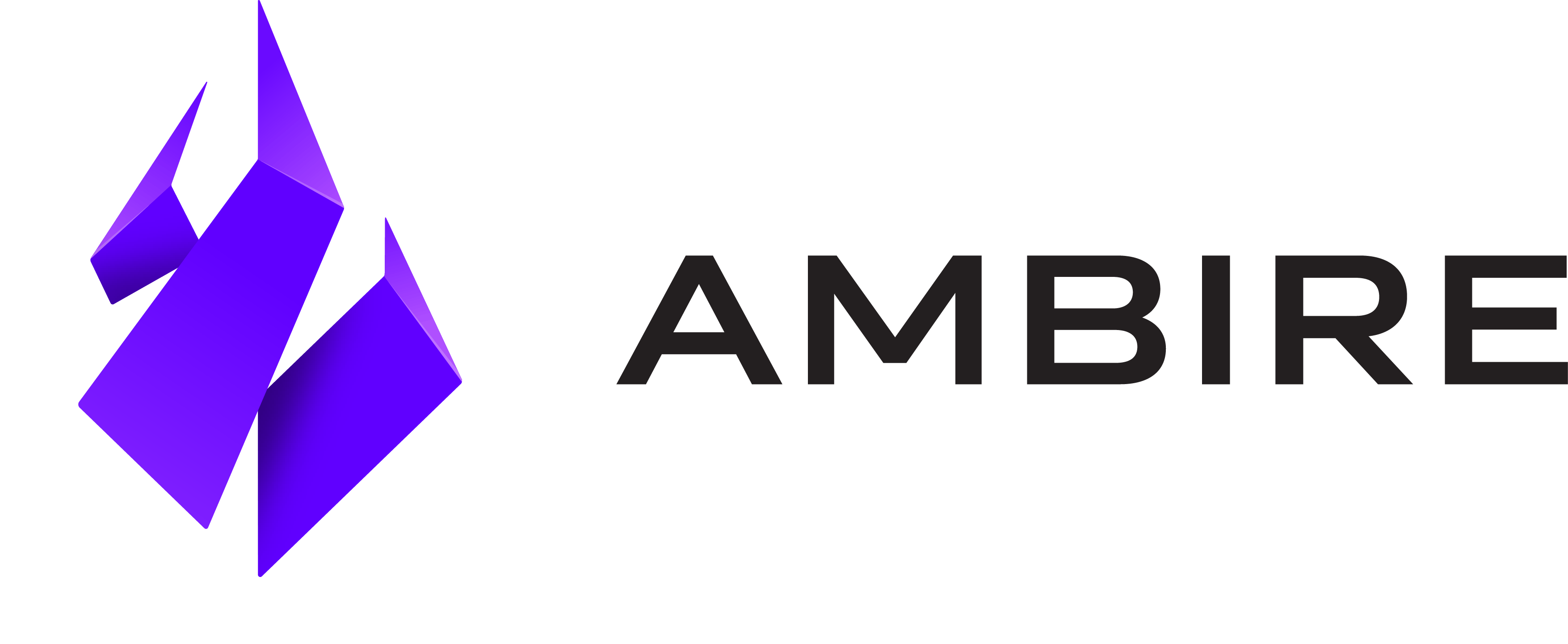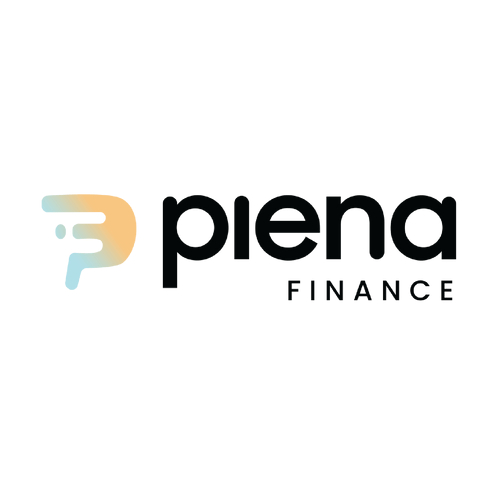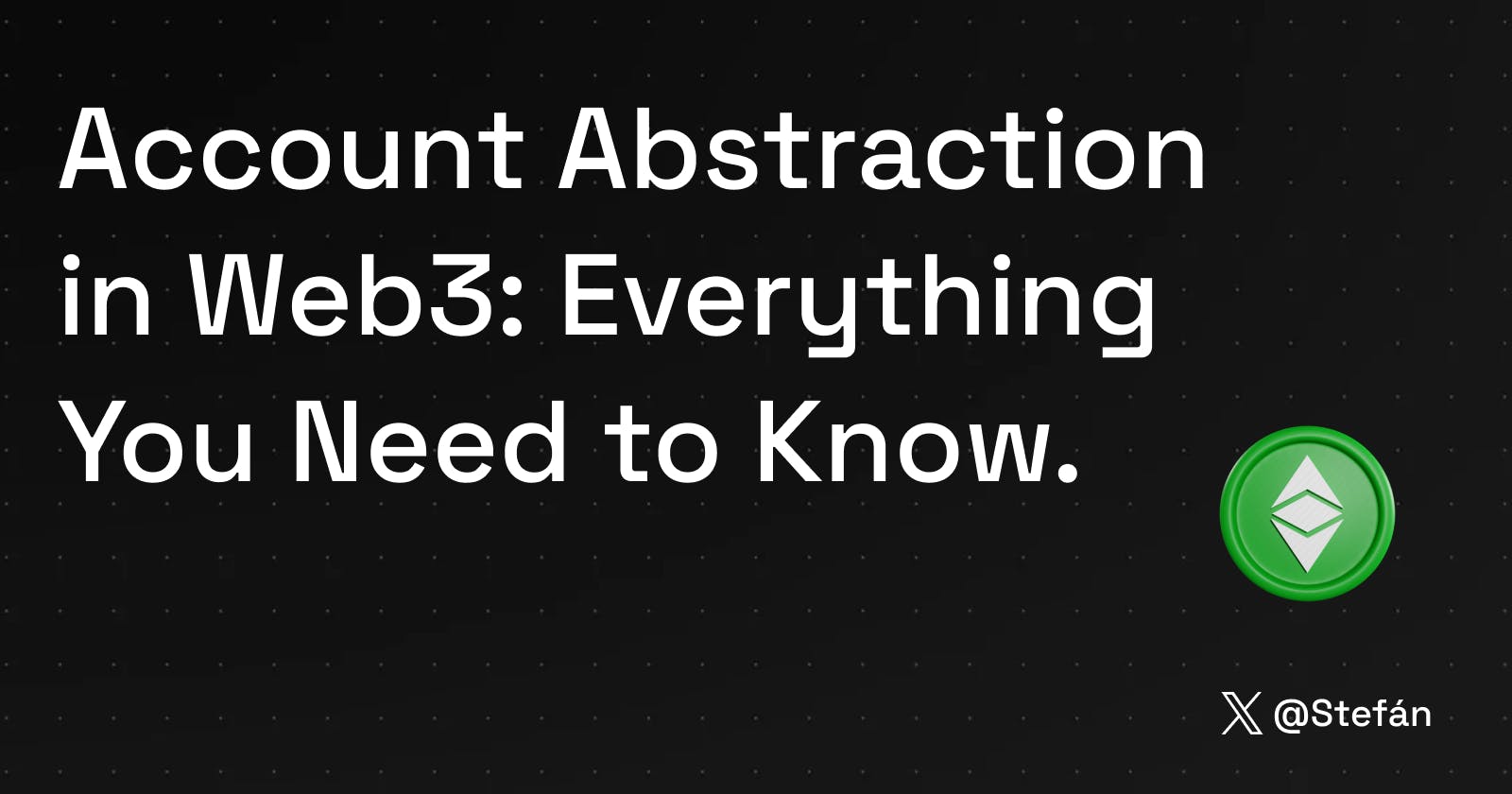To unlock the full potential of web3, we must address a significant challenge: adoption. For many, venturing into web3 initiates a daunting series of tasks. These include creating a wallet, securing private keys, managing funds, dealing with gas fees, and signing into numerous decentralized applications (dApps) that require approval. Frankly, this process can seem overwhelming to newcomers.
In this article, we will explore several key aspects. We'll dive into the issues that were faced before the release of the Account Abstraction(ERC-4337) update. We'll also delve into the concept of account abstraction, Externally Owned Accounts (EOA's), Smart Contract Accounts, their differences, the wallets that support Account Abstraction, the improvements it brings to the ecosystem, and the opportunities it presents.
So, without further ado, let's get started!
Issues faced before the Account Abstraction?
Before the groundbreaking Account Abstraction update, the Ethereum community faced a series of challenges. These challenges made transactions and interactions on the blockchain less efficient. They were a source of frustration and limitations within the ecosystem. In this section, we will explore the real-world issues that motivated the development of account abstraction, which include:
Managing your private keys
Lack of social recovery
Limited account flexibility
Gas fees payment restricted to ETH
Before we dive into Account Abstraction fully its important we have an idea of what an ethereum account is, the types of Ethereum(ETH) account and their differences.
What is an Ethereum Account?
basically, we have two types of Ethereum account which are:
Externally Owned Accounts (EOA’s)
Smart Contract Accounts (SCA’s)
Externally Owned Accounts (EOA’s)

Externally owned accounts are Ethereum accounts controlled by anyone with private keys.
EOA’s receive, hold, and send ETH and tokens.
Examples of an externally owned account are Coinbase, metamask and trust wallet.
Smart Contract Accounts (SCA’s)

Smart contract accounts are Ethereum accounts that have the ability to interact with smart contracts on the Ethereum Blockchain.
SCA’s can also receive, hold and send ether and tokens.
examples of a smart contract account are ArgentX, Obvious wallet and Ambire wallet.
Externally Owned Accounts (EOA’s) VS Smart Contract Accounts (SCA’s)
| EOA’s | SCA’s |
| Creating an account costs nothing | creating an account costs something because networks storage is being used. |
| can initiate transactions | can only send transaction in response to receiving a transaction. |
| Transactions can only be ETH/ token transfers. | transactions from Eoa’s can trigger code with different actions such as transfer of tokens or creating smart contracts. |
| made up of public and private keys | controlled by logic of smart contract code. |
having discussed the types of Ethereum accounts we have, lets look what the buzz about Account Abstraction is.
What is Account Abstraction?
Account abstraction is an ethereum update (ERC-4337) which was proposed in 2021 and became authorized in March 2023 on the (Ethereum mainnet)
Account Abstraction combines the feature of EOA’s and SCA’s which makes a single contract account that can transact with tokens and create contracts with.
- it gives smart contract functionality to a single account which enables processes like multifactor authentication, social recovery, customization, upgradeability and automatic payments.
before we explore the wallets that have this functionality we would need to take a little detour just so we can understand what ERC and a wallet is.
What is ERC?
ERC from the ERC-20(Ethereum token), ERC-4337(Account Abstraction update) we’ve been seeing around basically means Ethereum Request for Comment.
ERC refers to the set of standards associated with Ethereum blockchain.
now what is a wallet?
What is a wallet?

a wallet is an interface that lets you interact with your Ethereum account, manage your digital assets(NFTs and cryptocurrencies) and interact with the blockchain.
Examples of wallets are: Metamask ,Trust wallet or hardware wallets.
Account Abstraction Supported Wallets
Now that we've covered the basics of what ERC means and what a wallet is in the Ethereum context, let's delve into the exciting world of wallets that have embraced the update. These wallets offer users enhanced capabilities and a smoother experience in interacting with the Ethereum blockchain.
In this section, this article will introduce you to some of the leading wallets that have integrated support for Account Abstraction. These wallets empower users to leverage the Account Abstraction update, enabling more flexibility and control over their transactions and smart contracts. While there are several wallets that support Account Abstraction, we will focus on the following five wallets in this discussion:
Obvious Wallet

Obvious is a mobile-only smart contract wallet designed for seamless crypto transactions. It is an account abstraction-based smart wallet app on Ethereum that allows users to pay for gas fees in their preferred ERC-20 tokens, such as USDC, USDT, and DAI. It enables users to execute multi-step complex transactions with a single click. Additionally, the Obvious app supports various features like sending, receiving, bridging, and cross-chain swapping across 17 different chains natively within the app.
Account Abstraction Features:
Smart Wallet: Obvious creates a Smart Contract-based Wallet for users, which is based on the ERC-4337 proposal. This provides improved security, the ability to customize the wallet, batch transactions, and eliminates the need to manage seed phrases.
Multi-Chain Support: Smart Wallet is currently supported on the Ethereum and Polygon chains, with plans to add support for more chains in the future.
Seedless Recovery: Obvious offers an optional MPC-based wallet backup and recovery mechanism, which splits the encrypted seed phrase into three keys (Device Key, Social Key, and Cloud Key) for added security and ease of recovery.
User Benefits:
Seamless Transactions: Obvious simplifies the process of executing complex transactions with a single click.
Gas Fee Flexibility: Users can pay gas fees in their preferred ERC-20 tokens.
Multi-Chain Functionality: Users can perform various operations across 17 different chains within the app.
Portfolio Tracking: The app includes an in-built portfolio tracker for tracking tokens.
Smart Contract Security: Smart Wallet offers improved security and customizability.
Seedless Recovery: This optional feature enhances wallet backup and recovery for added peace of mind.
Ambire Wallet

Ambire Wallet is a self-custodial crypto wallet designed for both newcomers and experienced users. It offers a user-friendly interface with robust Web3 functionalities, including:
Multiple Login Options: Choose from various sign-in methods.
Deposit Methods: Support for different deposit methods and off-ramp solutions.
Transaction Batching: Combine multiple operations into one transaction to save on gas fees.
Gas Tank Feature: Pre-pay for gas fees in your preferred stablecoin.
Human-Readable Transactions: Simplified transaction descriptions for easy understanding.
DeFi Access: Connect to built-in DeFi protocols with a single click.
Swaps and Cross-Chain Capabilities: Built-in tools for swapping and cross-chain operations.
Crypto Purchases: Buy crypto with a credit card or via bank transfer.
Crypto Sales (Off-Ramp): Sell crypto to your bank card or bank account (KYC required).
Debit Card Integration: Upcoming feature for easy crypto spending
Ambire Wallet stands out as a smart wallet, where each user account is a smart contract rather than a traditional keypair.
This unique approach offers numerous advantages, including:
Eliminating ERC-20 Approvals: Simplifies transactions and reduces gas costs.
Advanced Authentication: Easily switch between authentication methods, even setting daily limits.
Gas Abstractions: Pay transaction fees in any token you have, not just ETH.
Ambire Wallet supports several networks, including Ethereum, Polygon, Avalanche, BNB, Fantom Opera, and many more. It's a game-changer for the DeFi world, combining security, ease of use, and powerful features to provide an all-in-one solution for crypto users.
Argent wallet

Argent is a recently developed Ethereum-based wallet known for its simplicity and security features. It offers users increased security from potential attacks with daily transfer limits. Notable features of the Argent wallet include:
Simplicity: Argent eliminates the need for a seed phrase and complexity, making it user-friendly and accessible.
Security: Enjoy high-security standards with features like locking and unlocking your account, auto-blocking transactions, and setting trusted contacts.
Interoperability: The wallet is interoperable with hardware wallets for added security.
Quick Transfers: Execute quick transfers and manage your assets seamlessly.
Argent stands out as a simple and secure smart wallet for DeFi and Web3. It's built on zkSync, a Layer 2 solution, providing the best of Ethereum at a fraction of the cost. Additional offerings include Argent Vault for enhanced security on Ethereum Layer 1 and Argent X, a browser wallet for StarkNet.
With Argent, you can store, send, save, borrow, earn interest, invest, and enjoy decentralized apps with just a few taps. It provides easy access to popular DeFi protocols such as MakerDAO, Compound, Set Protocol, Uniswap, and more.
Soul Wallet

Soul Wallet is an innovative smart contract wallet tailored for a seamless and efficient experience on the Ethereum blockchain. Leveraging the ERC-4337 standard and Layer 2 scaling solutions, Soul Wallet caters to the needs of the growing decentralized ecosystem. Key features include:
Social Recovery: Say goodbye to complicated recovery phrases. Soul Wallet introduces Social Recovery, allowing you to choose trusted friends or existing wallets as guardians, enhancing security with a personalized touch.
Flexible Gas Fee Payments: Enjoy flexibility in paying gas fees using ETH, stablecoins, or any ERC-20 token. Some protocols may even cover your gas fees for you.
Advanced Security: Soul Wallet offers two-factor authentication (2FA) and Secure Swaps. With 2FA, assets can't leave your wallet without confirmation from a second device. Secure Swaps enable hassle-free token trading without worrying about approvals or security risks.
Unified Ethereum Experience: Designed with simplicity and inclusivity in mind, Soul Wallet offers a seamless, safe, and enjoyable journey through Ethereum and Layer 2 rollup platforms. Users can effortlessly navigate across supported Layer 2 networks.
Plena Finance

Plena Finance is a revolutionary smart wallet designed for NFTs, the metaverse, and Web3, with a mission to drive mass adoption of crypto. Plena's user-centric approach focuses on ease-of-use and full user custody of funds, ensuring users can confidently participate in the digital economy. Key features of Plena Finance include:
Pay in Any Token: Enjoy the flexibility of paying transaction fees in the token of your choice, similar to centralized exchanges.
Cost-Efficient Transactions: Experience 30% cheaper transactions for cost-effective crypto interactions.
Immediate Access: Access your funds instantly, reducing wait times for transactions and swaps.
One App For All Needs: Plena serves as a comprehensive crypto super app, offering access to over 100,000 cryptocurrencies and supporting various transactions and asset swaps.
Easy Wallet Recovery: Effortlessly recover your wallet, ensuring that you never lose access to your assets.
Full Custody: Plena ensures complete custody of your assets, with no access for anyone else, enhancing security.
Super Fast Transactions: Execute transactions at lightning speed, with one-click transactions.
Plena Finance combines self-custodial wallet security with centralized application convenience, allowing users to invest in a vast range of cryptocurrencies, make quick transactions, perform asset swaps, and bridge assets with ease. Plena's use of Account Abstraction technology sets it apart as a pioneering solution in the crypto space.
Benefits of Account Abstraction and Why It's Better:
This section explores the compelling benefits of Account Abstraction and why it represents a notable improvement. Let's delve into how this innovative concept enhances the Ethereum experience.
Flexibility in Gas Fee Payment: You can now pay for gas fees using a variety of tokens, not limited to ETH. This flexibility simplifies transaction costs and reduces the need for ETH.
Customizable Account: Account Abstraction empowers users to customize their accounts to suit their specific needs and preferences.
Session Keys: Session Keys: In Ethereum transactions, you often need to sign in multiple times. Account Abstraction simplifies this process by generating session keys. These keys allow decentralized applications (dApps) to sign transactions on your behalf, with predefined limits such as the maximum gas fee to spend.
Key Recovery.
Batching Transaction: One of the standout advantages is the ability to batch transactions. Users can execute multiple actions within a single transaction, such as approving a transaction and swapping tokens simultaneously.
Multi-Signature Support: it allows you assign more than one person to be a co-signer or guardian to your account incase you lose access to it.
Opportunities that account abstraction creates:
Account Abstraction has been gaining significant traction in recent times, offering a range of opportunities and benefits to both developers and users. Let's delve into some of the key opportunities it presents:
Innovation: Account abstraction fosters innovation within the Ethereum ecosystem. It enables developers to create more versatile and user-friendly applications.
Cost Savings: By allowing users to pay gas fees in a variety of tokens, not just ETH, account abstraction promotes cost savings.
Increased Adoption: The user-friendly features, enhanced security, and customization options provided by Account Abstraction can drive increased adoption of Ethereum and Web3 technologies.
Conclusion:
In this article, we've explored the challenges users faced before the Account Abstraction update, delved into Ethereum accounts, explained the concepts of EOA and SCA, introduced Account Abstraction, highlighted wallets supporting the update, and discussed the benefits and opportunities it offers. Now, it's your turn to experience the enhanced features and benefits by trying out these innovative wallets for yourself.
I trust this article has provided you with valuable insights into Account Abstraction, Ethereum accounts, and the wallets supporting this innovative update. If you have any feedback or questions, please feel free to leave a comment below or reach out to me directly. I would love to hear your thoughts on this topic and continue the conversation.

